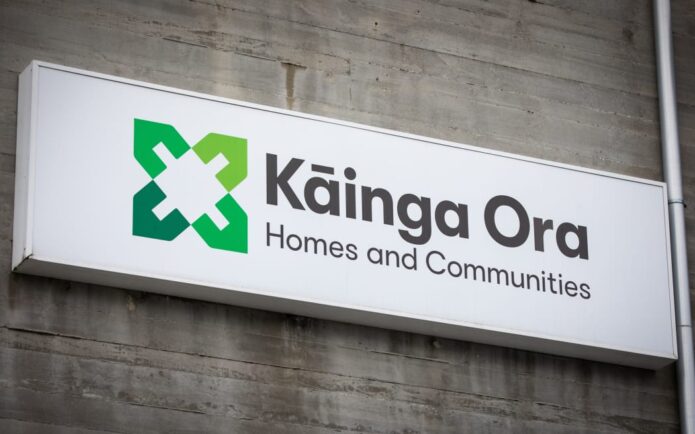PHOTO: Lake Rotoehu has risen so high homes are continuing to flood. (Source: Local Democracy Reporting)
A homeowner at Lake Rotoehu who experienced flooding is worried that forthcoming insurance claims might not receive coverage due to the lake’s gradual encroachment toward her front door.
The year 2022 saw an unprecedented number of climate-related claims, according to the Insurance Council. The costs of extreme weather event claims during that year amounted to $351.26 million, a rise from $324.94 million the previous year and $274.27 million in 2020.
This year has already seen even larger claim numbers, with a total of 107,569 claims from events like the Auckland Anniversary Weekend floods and Cyclone Gabrielle, resulting in an estimated cost of $3.18 billion, along with other damaging storms.
Due to rising lake levels caused by consecutive weather events, Lakes Rotoehu and Rotomā have posed significant challenges for affected residents. As a response, joint council and agency groups were formed to seek both short-term and long-term solutions.
Homeowner has gone from living her dream to her worst nightmare
Joan Blair, a homeowner in Rotoehu, found her property flooded following months of heavy rain. Despite making an insurance claim, her property became uninhabitable due to the water. Her insurance company, FMG, paid for the necessary adjustments, categorizing it as a flood event. However, uncertainty remains about coverage for similar events in the future.
FMG’s head of claims, Steve Beale, noted the surge in climate-related claims and expressed concern that as catastrophic weather events continue, some properties might become uninsurable. Areas like Hawke’s Bay faced such consequences after a cyclone six months ago.
REVEALED: ‘MOVERS AND SHAKERS’ of the NZ real estate industry | 2023
In the neighboring Ōtautū Bay, Adrian Holmes’ lakeside holiday house also experienced flooding due to groundwater. Despite the insurance claim, the home’s future insurability is in doubt, rendering the properties essentially unsellable.
Insurance Council spokesman Christian Judge emphasized the need for homeowners in similar situations to communicate with their insurers, explore alternative coverage if necessary, and collaborate with local councils for flood prevention measures. He pointed out the common challenges faced by insurers in the face of disaster claims, inflation, and a more stringent reinsurance market.
The Insurance Council and insurers have long advocated for investments in resilience measures to reduce risks, making insurance accessible and affordable. The introduction of the Categorisation system is indicative of a new approach by central and local governments to assess risk levels and mitigation requirements for affected buildings.
Insurer IAG received a staggering increase in claims related to severe weather damage, highlighting the increasing impact of climate-related events on insurance claims. Tower, another insurer, provided a flood risk tool to assess individual risk ratings and offered information on mitigating risks.
The Disconnect: New Zealand’s Real Estate Industry and Its Struggle to Align with the Modern World
Overall, these experiences underscore the essential role of insurance in enhancing collective resilience against the personal and economic impacts of climate-related events.
SOURCE: 1NEWS













